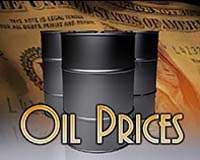 |
Tehran (UPI) Apr 28, 2011 When Iran, beset by international sanctions, had its annual oil and gas expo this month, there was no sign of the big Western oil companies and even less of the large-scale investment the Islamic Republic's energy industry desperately needs. And all the while, historic rival Iraq, its oil industry growing again after decades of decline, is threatening Iran's influence in the Organization of Petroleum Exporting Countries. When the 16th International Oil, Gas, Refining and Petrochemical Exhibition opened April 19 in Tehran, Iranian officials claimed that 10 U.S. companies had defied U.N. and U.S. sanctions imposed in June 2010 to attend. But none could be found. "Oil analysts believe the claims of U.S. attendance, whether or not a bluff, are an illustration of the country's desperation for Western investment and technology to develop and maintain its oil and gas fields," the Financial Times observed. The Oil Ministry says Iran, OPEC's second ranked producer after Saudi Arabia, needs at least $200 billion in investment by 2015 to upgrade and expand the rundown oil and gas industry. The sanctions, imposed in retaliation for Iran's refusal to abandon its contentious nuclear program which the West believes is aimed at developing nuclear weapons, have scared off potential investors. Royal Dutch Shell and Total of France had been slated to sign major gas deals with Iran but have backed off because of international pressure and the prospect of legal action for violating the sanctions. "Shell, which had one of the biggest stands at the exhibition in previous years, was a noticeable absentee this year," the Financial Times reported. To compensate for the absence of Western oil companies operating in Iran, the government has awarded multibillion-dollar contracts to state-owned or private Iranian enterprises and Asian groups. These include China's Sinopec and the China National Petroleum Corp. which have been highly active in securing major energy deals in Africa and increasingly around the Middle East. In February, Naji Saadouni, president of Iran's Petroleum Engineering and Developing Co., was quoted as saying China will invest $2.5 billion in developing the South Azadegan oil field that straddles the border with Iraq. Output there, currently 55,000 barrels a day, is eventually expected to reach 600,000 bpd -- a major boost for Iran's energy sector. In 2009, the China National Offshore Oil Corp. signed a $1.76 billion deal with the state-owned National Iranian Oil Co. to develop the North Azadegan field where they hope to extract 75,000 bpd. Tehran says the field is one of the biggest in the world, with reserves estimated at 42 billion barrels. Beijing buys 1-10th of the Persian Gulf's oil output and one-quarter of Iran's, which makes Iran China's second most important oil supplier. More than 100 Chinese companies operate in the Islamic Republic and the semi-official Fars News Agency reports that China has signed contracts worth $120 billion with Iran's hydrocarbons sector. Sinopec has committed $6.5 billion to building new oil refineries in the Islamic Republic. Its current refining capacity isn't enough to meet domestic demand, forcing Iran, with the world's second largest reserves of oil, to import petroleum products. That's an impressive lineup. But even with the presence of 166 Chinese companies at the Tehran expo, "Iran's oil and gas sectors suffer from the absence of oil majors and the large-scale investment that only they are able to support," the Financial Times commented. South Pars, the world's biggest gas field with 1,800 trillion cubic feet of gas, has fallen heavily behind its development schedule because of the lack of investment and technology. In neighboring Iraq, however, a score of major foreign oil companies, including U.S., French, Italian and British outfits, have production contracts with Baghdad that are turning its long-neglected oil and gas sector around. Iraq aims to be able to produce up to 12 million bpd by 2017, eclipsing Iran and challenging Saudi Arabia. This has Tehran worried. Industry analysts say Iran has lost some of market share to a resurgent Iraq, which produces around 2.4 million bpd, because it's getting advanced technology and can offer lower prices. Even higher oil prices, driven up by the political upheaval engulfing the Arab world, haven't helped Iran. It production is falling and exports have tumbled because of the sanctions.
Share This Article With Planet Earth
Related Links Powering The World in the 21st Century at Energy-Daily.com
 High oil prices fuel ExxonMobil bumper profits
High oil prices fuel ExxonMobil bumper profitsNew York (AFP) April 28, 2011 ExxonMobil reported nearly $11 billion in quarterly profit Thursday on the back of a surge in oil prices that has put the company in the crosshairs of US politicians, including President Barack Obama. As Americans struggle to cover the higher price of gasoline, Exxon reported net income of $10.65 billion in the first quarter, a leap of 69 percent from the year-ago period. Even as Obama h ... read more |
|
| The content herein, unless otherwise known to be public domain, are Copyright 1995-2010 - SpaceDaily. AFP and UPI Wire Stories are copyright Agence France-Presse and United Press International. ESA Portal Reports are copyright European Space Agency. All NASA sourced material is public domain. Additional copyrights may apply in whole or part to other bona fide parties. Advertising does not imply endorsement,agreement or approval of any opinions, statements or information provided by SpaceDaily on any Web page published or hosted by SpaceDaily. Privacy Statement |